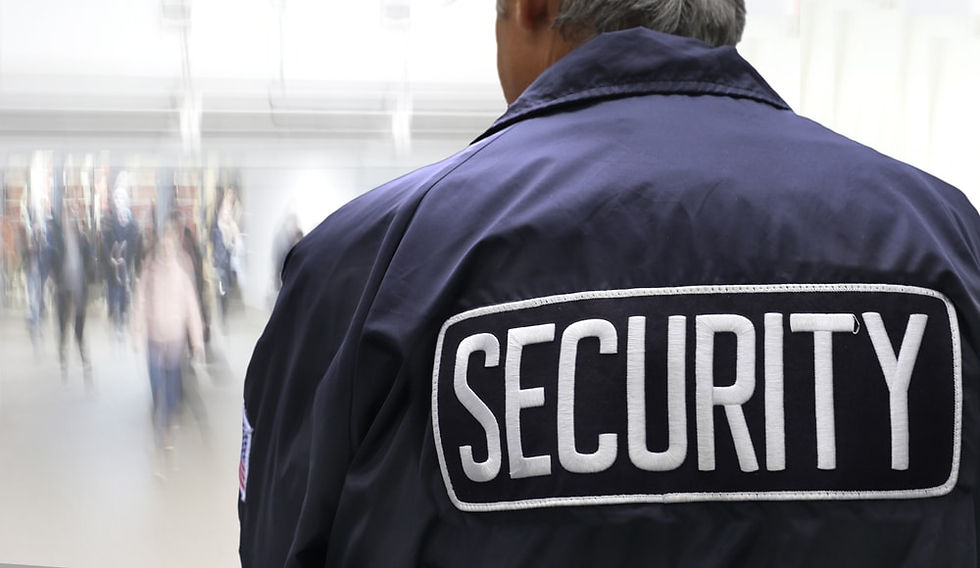Legal Powers and Limitations of a Security Officer
- Security Officer Labor Unions Blog

- Feb 15, 2022
- 3 min read

A Security Officer in New York State for example has the same authority, no more and no less, as that of a private person. A Security Officers arrest authority will vary depending on the employer’s policies and requirements, as well as purely legal rules.
The circumstances in which Security Officer may be involved while performing their duties require them to make decisions as to what legal authority they have at that moment. If Security Officers exceed their legal authority, they can face serious criminal or civil liability for their actions. Security Officers can lose their jobs, be personally named in legal actions or be charged and face trial for criminal offenses.
Conversely, if Security Officers do not exercise their authority in a given circumstance, they could be reprimanded by their employer, face termination, be named in a legal action or be responsible for having their employer brought to court for damages as a result of the failure to perform their duties. There are times when Security Officers are in a position to legally arrest or use force upon a person, but there may be a company policy set forth by the employer prohibiting them from the use of force or affecting an arrest. This issue should be resolved by the Security Officer and their employer. Generally, Security Officers are not empowered by commission, ordinance, deputization, or federal or state law to act as law enforcement Security Officers.
ARREST BY A SECURITY OFFICER/PRIVATE PERSON
Arrest means the seizure of a person. An arrest occurs whenever any action significantly interferes with a person’s freedom of movement. Legally, words like “detention,” “restraint,” “seizure,” and “arrest” are synonyms. Any time a person’s freedom of movement is significantly interfered with by another person, an arrest has occurred no matter what you call it.
An arrest may result from direct physical restraint, or from words, or circumstances which functionally restrict a person’s freedom of movement.
Example: Three uniformed Security Officers believe they have identified a shoplifter. They follow the individual out of the store into the parking lot. They split up, and “surround” the suspect. No words are spoken. When each Security Officer is about twenty feet from the suspect, the suspect notices them. There is no obvious avenue for the suspect to avoid the Security Officer, and the suspect stops. The suspect has been arrested. Even though no words were spoken, or direct physical restraint employed, a reasonable person in the suspect’s position would have objectively believed that s/he was not free to continue on his or her way unimpeded. It would have been apparent to an objective observer that the reason why the suspect stopped was in response to the actions of the security personnel.

To be lawful, or “privileged,” an arrest must be legally justified. Without sufficient legal justification, an arrest is illegal and may subject the arrestor to civil or criminal liability. The legality of an arrest will be measured against applicable law, and the facts and information known to the arrestor at the moment s/he restrains another person’s freedom of movement.
For public police Guards / Security Officers, Fourth Amendment constitutional criminal procedure law has been the primarily legal authority governing their powers of arrest. For private people, including private Security Officers, constitutional law does not apply and their legal authority to arrest is governed by the law of “citizens’ arrest.” Security Officers have no “special” authority to make an arrest.
In New York, the law of citizens’ arrest is entirely statutory. That means that there is no “inherent” right to make a citizens’ arrest, and the rules governing citizens’ arrests are specifically written in the statutes. Thus, to be lawful, a citizens’ arrest in New York must comply with the terms of the statutes.








Comments